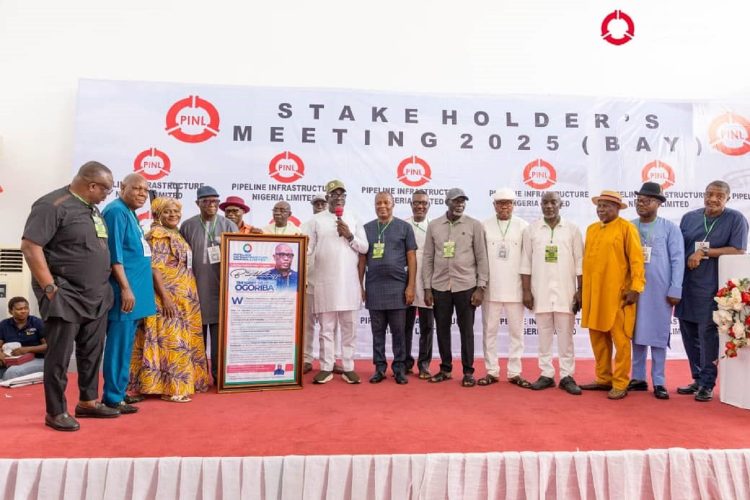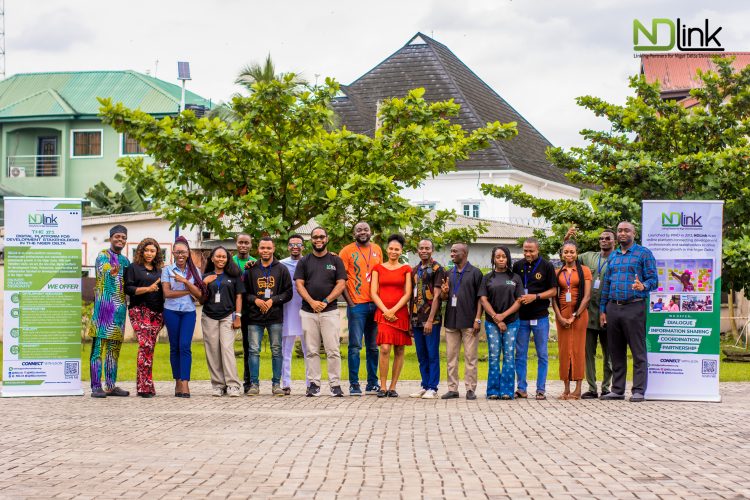
Nigeria mobilises $700 million for Trans-Sahara gas project –Jonathan
January 30, 2014
[PRESS RELEASE] The Niger Delta and the National Conference
February 4, 2014By Johanna L. Wiese.
Last week, Minister of Niger Delta Affairs Elder Godsday Orubebe announced the launching of the $200 million Multi-Stakeholder Trust Fund (MSTF) in 2014, providing some long sought answers to questions over the implementation of the Niger Delta Action Plan (NDAP).
NDAP, which was endorsed by Nigeria’s President Goodluck Jonathan in April 2013, and covers the period of 2013 – 2017 inclusive, seeks to combat the endemic poverty and underdevelopment in the region through a US$10 billion investment. The MSTF is a separate mechanism under the Plan, which seeks to mobilize additional catalytic market development investment. Unlike its predecessors, NDAP has been commended for establishing a formal and structured vision and strategy for addressing some of the region’s most pressing social and environmental issues.
“This plan is of great relevance for its concrete, comprehensive and coherent programme of investments in the social and infrastructure sectors of the various communities in the Niger Delta,†stressed President Jonathan during the launch.
The Niger Delta is one of the world’s most valuable wetland and coastal marine ecosystems with a vibrant and productive extractive sector, but the region faces a wide-range of security and socio-economic development challenges. Its 31 million inhabitants are struggling to combat high rates of maternal and child mortality, HIV/AIDS, limited access to potable water and sanitation facilities and widespread poverty.
“You can get a shopping list of problems when it comes to the Niger Delta,†explains University of California-Berkley Professor and Niger Delta expert Michael Watts. “The question is whether this time the change is real, or if the Action Plan is yet another excuse for inaction.â€
The Plan’s primary author, namely the Ministry of Niger Delta Affairs (MNDA) and the Federal Government, have lauded the document for its focus on institutional independence, bottom-up development approaches, and consultative mechanisms. Based on the Niger Delta Collaborative Development Framework 2010, the NDAP’s objectives are:
- To define a common vision of development objectives for public and private stakeholders in the Niger  Delta region, which the majority of stakeholders endorse
- To achieve greater synergy and co-ordination of effort of current development spending in the Niger Delta
- To establish a common framework to measure the effectiveness of development spending in the Niger  Delta and to report on this on an annual basis
- To mobilize additional investment which will address high impact and catalytic investment priorities which are not addressed by current funding
- To increase the accountability and responsiveness of development investment to residents and  communities of the Niger Delta
Progress in the Niger Delta is critical for all of Nigeria. Unlike many other developing regions across the country, the Niger Delta has significant financial resources at its disposal due primarily to the region’s thriving extractive industry.
The main problem, say analysts, is the government’s ability to manage and spend the funds responsibly. This is true at the regional and federal level. According to Mariam Sissoko, representative of the UN Office on Drugs and Crimes in Nigeria (UNODC), ten percent of the money lost to corruption in Nigeria would suffice to allow the country to achieve its Millennium Development Goals by 2015.
â€The Niger Delta is a very important region because they are the goose that lays the golden eggs. And if the goose and the eggs laid are not taken care of, Nigeria will not be what it aspires to be†warned outgoing UNDP Country Director in Nigeria, Ade Mamonyane Lekoetje in August 2013.
In 2013, Nigeria was ranked 144 out of 177 nations in the Transparency International Annual Corruption Perceptions Index, but there is optimism that the region’s worst days are behind it.
“There is a wind of change across Nigeria with regard to corruption. People are more concerned now. During past elections, votes were bought, particularly in the Niger Delta. This time around we hope that it is different,†said Audu Liman, Country Director of PACT Nigeria, an NGO which has supported the capacity building of civil society organizations to advocate for more transparency and accountability in the Delta.
Proponents of NDAP contend that rigorous monitoring and evaluation of development metrics and indicators will promote the more targeted and responsible use of funds, reducing malfeasance and corruption.
As outlined in the NDAP, MSTF will seek out business-driven development approaches and make catalytic investments to stabilize development in the region. Specifically, MSTF spending will address the region’s high unemployment rate and other social issues by providing grants and technical advice to organizations involved in the establishment of inclusive business models, taking into account gender sensitivity and environmental standards. The Fund will also administer a corresponding Challenge Fund to further support enterprises that scale up or replicate inclusive business models.
Analysts say that addressing the region’s widespread joblessness and poverty is critical to reducing violence and instability. For instance, youth unemployment has been blamed for cases of oil pipeline vandalism. The amnesty process in 2009 – which disarmed 30,000 former combatants and provided technical and vocational training to reintegrate them into the workforce – has reduced conflict significantly, but there is lingering concern that training courses are not followed up with a guarantee for sustainable employment.
“People that benefit from the training complete university [elsewhere] and come back and have no jobs,†lamented PACT Country Director Liman.
Yet, the most important aspect of the Plan might be its focus on stakeholder consultation and dialogue.
“When we work together, we are better able to unleash our creative potential in optimizing our huge human and natural resources for the stability of the Niger Delta, and for the good and progress of our country, Nigeria,” Akwa Ibom State Governor Chief Godswill Akpabio explained during the establishment of the MSTF.
The National Council on the Niger Delta is expected to play a key role in facilitating this consultation and dialogue. A newly-established multi-stakeholder body, the Council consists of 40 members, including UNDP, the European Union, representatives of governments of the nine Niger Delta States, and federal ministries and government agencies, civil society organizations, and local and foreign-invested private sector companies.
Additional community outreach and collaboration measures include participation in the Extractive Industries Transparency Initiative, a Niger Delta Stakeholder Forum, formal periodic consultations with communities in the Niger Delta, and the publication of an annual Niger Delta Scorecard.
Liman is confident that collaboration holds the key to tackling the challenges of the region: “Civil society organizations, in particular, can do a lot about awareness raising and education. They need to work with village development committees to change behavior within communities, especially when it comes to handling oil money and identify solutions to promote sustainable community development.â€
Johanna L. Wiese is an Analyst for Devex’s Survey and Advisory Services (SAS). Devex is the largest online community for international development professionals.










